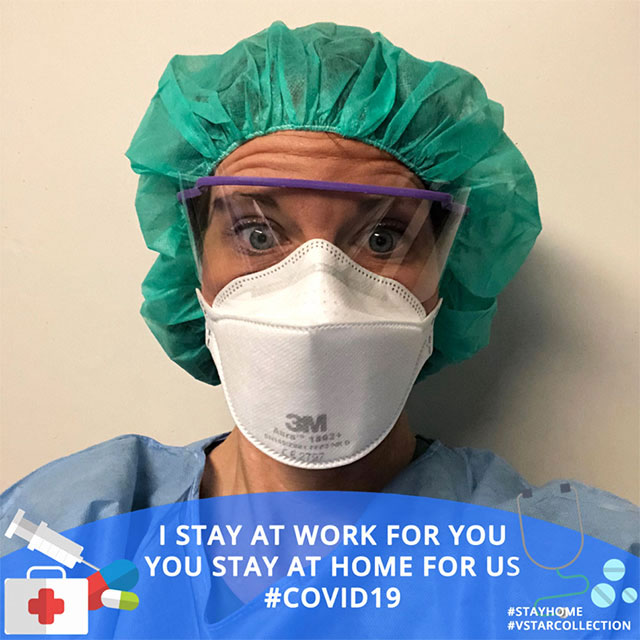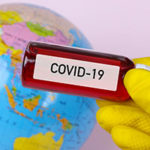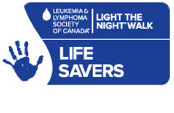In the US, the Coronavirus pandemic has infected over 138,000 people in New York state alone. It’s also taken a toll on those who are most needed to combat it: doctors, nurses and other workers at hospitals and clinics.
In emergency rooms and intensive care units, typically dispassionate medical professionals are feeling panicked as growing numbers of colleagues become infected.
My friend Stacey Voges-Valin, originally from Burlington, Ontario, works as an ICU nurse in The Netherlands and I thought it would be interesting to see how Dutch hospitals are faring during the pandemic, so I messaged her a few questions to get the conversation started.
Stacey is an ICU senior nurse and clinical nurse educator at Amsterdam’s AMC (Academic Medical Center). Over 7,000 people work here to provide integrated patient care, fundamental and clinical scientific research and teaching.
What are some of the ways that Dutch hospitals are working with COVID-19 patients to help them once they’ve been admitted to hospital?
Dutch hospitals have set up one or more fully functioning units strictly to accommodate COVID-19 patients, separate from the increase in ICU beds being made available. Having heard about the oncoming pandemic with time to prepare, all Dutch hospitals started getting ready for the war zone we are all now experiencing.
However, one can never be prepared for something as unpredictable as this virus. It seems as though we are not able to do much extra to help patients at this point, other than of course help them in their healing process.
To address the issue of lack of visitation, on the ICU where I work one of the staff ICU doctors arranged with the ICT department a safe way to use smart phones on the ICU.
There are a few smartphones dedicated for this that remain on the “cohort-unit”. This lets families not allowed to even enter the hospital, let alone visit their loved one, to see them via video chat when time permits and the family asks to connect. Special exceptions are made when a patient is nearing end of life.
Tell us about a typical day during your shift, and how much of your work is Coronavirus-focused lately.
A typical day for me depends on whether or not I have an office day or not. If not, I am functioning as an ICU nurse, looking after up to two patients myself and fulfilling a supervisory role as a preceptor for ICU students.
However since the outbreak of COVID-19, all office days have been revoked because we need all hands on deck. Most of us with extra responsibilities on the unit who are in similar functions are doing a lot of extra work at home.
The last two weeks we have been nursing COVID-19 patients. In the Amsterdam area we have been waiting, in a silence before the storm, for the patients to starting streaming in.
The southern part of The Netherlands has been dealing with an overflow of patients, which we at first were trying to hold off accepting, knowing we too were going to be inundated by an influx of patients. But, a national COVID ICU transport team has been set up to organize fair dispersion of all COVID patients requiring ICU care.
It was no longer ethical to not offer available ICU care to patients that needed it and couldn’t receive based on their geographical location.
We have eight ICU units up and running to accommodate six COVID units and two non-COVID units. The non-COVID units are important because even though there are few operations taking place, there are plenty of patients still requiring ICU care that cannot be unnecessarily exposed to the virus.
The past two weeks have also been stressful for the ICU staff preparing the previously unused units for use and training non-ICU staff so that they can efficiently be deployed. We have gone from operating three ICU/MC units (because that’s what we could responsibly staff) to eight.
In order to make this possible, the operations schedule has been canceled and only emergency cases are being done, so that the majority of the OR staff can assist on the ICU.
Each ICU nurse (including myself) is responsible for four ICU patients, all of whom must be rotated from stomach to back in order optimize oxygen supply and lung-function while being ventilated. Patient rotating is an intensive task. All tubes and lines need to remain intact, most importantly the ventilation tube.
This task must be done together with a ICU doctor or anesthetist to ensure the ventilation tube remains intact, knowing there is always a risk that the patient could become unstable.
During an eight-hour shift, all doctors and nurses are able to take one break, to eat, get fresh air and make a much needed sanitary stop. We have to be conscious of the supply of protective wear we do have.
Are frontline workers looking at other countries when establishing protocol or does The Netherlands have a system in place when deciding on testing the population and delegating respirators across ICU units across the country?
All government levels in The Netherlands as well as national institutions have learned from other countries during this pandemic, in order to make the most appropriate decisions that can be made for our country at this time.
Supply and demand always plays a role; like elsewhere in the world, we too are restricted to these limitations. The military have played an essential role in assisting at all levels in this crisis, providing equipment such as ventilators, even doctors and nurses!
The estimated amount of ICU beds has increased to 2,400 (and possibly more), but there just aren’t enough nurses and other support staff to make any more beds available. This will mean that a more strict triage will need to be in place.
Mental well-being is obviously important to us all during this unprecedented time. What are you doing to keep positive in light of the work you do?
Mental well-being is absolutely imperative during this crisis, especially being an ICU nurse and being exposed daily to positively-tested patients and seeing many of our patients die. We are also communicating with families of these patients who are completely distraught and emotionally overwhelmed, understandably so.
Our hospital has arranged physiologist-guided evaluation sessions which take place after each shift. We can discuss whatever is on our minds during these sessions.
Various topics are addressed such as how we are mentally coping with the angst that we might too get infected and/or bring it home to our families, to how processes can be improved within the organization.
We also have a peer support team on the ICU. These are colleagues who have been trained to assist us individually if we ever need to talk about things affecting us related to our work. Their motto is: It’s OK to be not OK. Let’s talk!
Community Spirit During a Crisis
There are numerous staff members and generous citizens donating various things in abundance — it is heartwarming to see. Anything from t-shirts for the staff to wear underneath the protective gear, to chewing gum, protective eyewear, masks, food to feed hundreds of ICU staff and the list goes on. Since restaurants are closed and their stock would otherwise spoil they are spending hours cooking for us!
Even students who are not able to finish placements are pitching in where they can, baking 😊. Many companies have even shifted their manufacturing to accommodate our needs, such as the increased demand for masks.
The team spirit, comradery, understanding and empathy we all have for one another is amazing. We have no other choice but to be in this together, it’s going to affect all of us in a major way! We can all learn from each other, especially now.



















